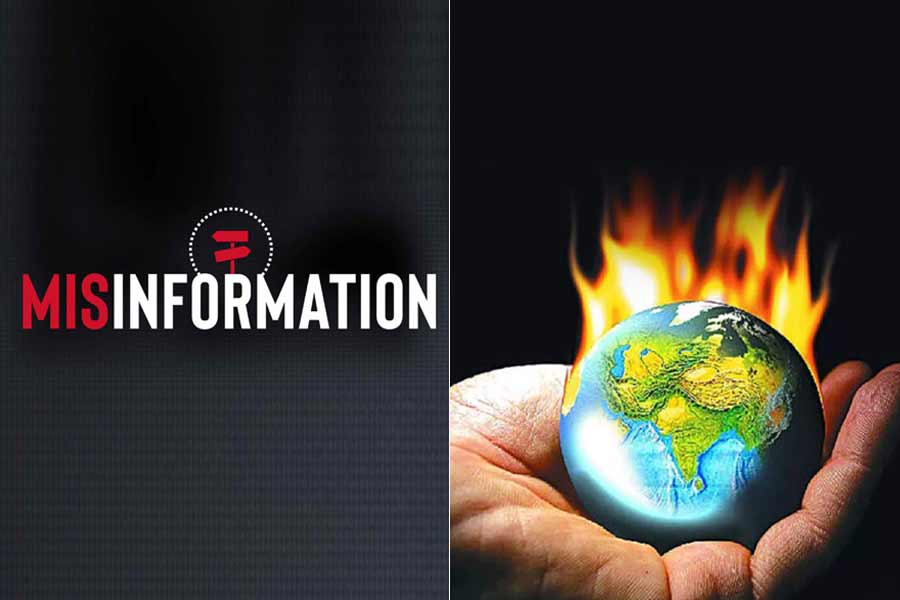With close to 300 crore people expected to head to elections across countries including India and the US in two years, misinformation and societal polarisation have emerged among the biggest immediate risks before the world, a global study showed on Wednesday.
In the case of India alone, 'misinformation and disinformation' poses the top-most threat in the next two years, the World Economic Forum (WEF) said in its annual 'Global Risks Report'.
It is followed by infectious diseases, illicit economic activity, income inequality and labour shortage among the five biggest short-term risks.
On a longer-term horizon of ten years, the biggest global risk would be from extreme weather events.
The report warned of a global risk landscape in which progress in human development is being chipped away slowly, leaving states and individuals vulnerable to new and resurgent risks.
"Against a backdrop of systemic shifts in global power dynamics, climate, technology and demographics, global risks are stretching the world's adaptative capacity to its limit," the WEF said.
The report, released ahead of the WEF's five-day annual meeting in Davos beginning January 15, argued that cooperation on urgent global issues could be in increasingly short supply, requiring new approaches to addressing risks.
"Two-thirds of global experts anticipate a multipolar or fragmented order to take shape over the next decade, in which middle and great powers contest and set – but also enforce – new rules and norms," it said.
The report, produced in partnership with Zurich Insurance Group and Marsh McLennan, has taken into account the views of over 1,400 global risks experts, policy-makers and industry leaders surveyed in September 2023.
Results highlight a predominantly negative outlook for the world in the short term that is expected to worsen over the long term. While 30 per cent of global experts expect an elevated chance of global catastrophes in the next two years, nearly two thirds expect this in the next 10 years.
On a short-term horizon of two years, the report identified 'misinformation and disinformation' as the biggest risk, followed by extreme weather events, societal polarisation, cyber insecurity and inter-state armed conflict in the top five.
In the long term (ten-year period), extreme weather events emerged as the biggest risk, followed by critical changes to earth systems, biodiversity loss and ecosystem collapse, natural resource shortages and 'misinformation and disinformation' in the top five.
Emerging as the most severe global risk anticipated over the next two years, foreign and domestic actors alike will leverage misinformation and disinformation to further widen societal and political divides, the report said.
"As close to three billion people are expected to head to the electoral polls across several economies – including Bangladesh, India, Indonesia, Mexico, Pakistan, the United Kingdom and the United States – over the next two years, the widespread use of misinformation and disinformation, and tools to disseminate it, may undermine the legitimacy of newly elected governments.
"Resulting unrest could range from violent protests and hate crimes to civil confrontation and terrorism," it added.
However, as truth is undermined, the risk of domestic propaganda and censorship will also rise in turn, and in response to mis- and disinformation, governments could be increasingly empowered to control information based on what they determine to be "true", the WEF report said.
"Freedoms relating to the internet, press and access to wider sources of information that are already in decline risk descending into broader repression of information flows across a wider set of countries," it added.
Except for the headline, this story has not been edited by The Telegraph Online staff and has been published from a syndicated feed.










